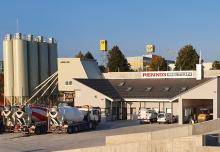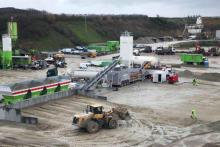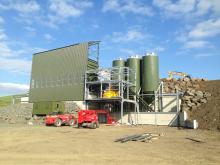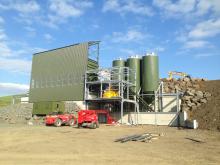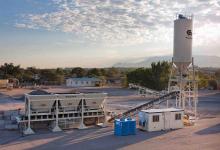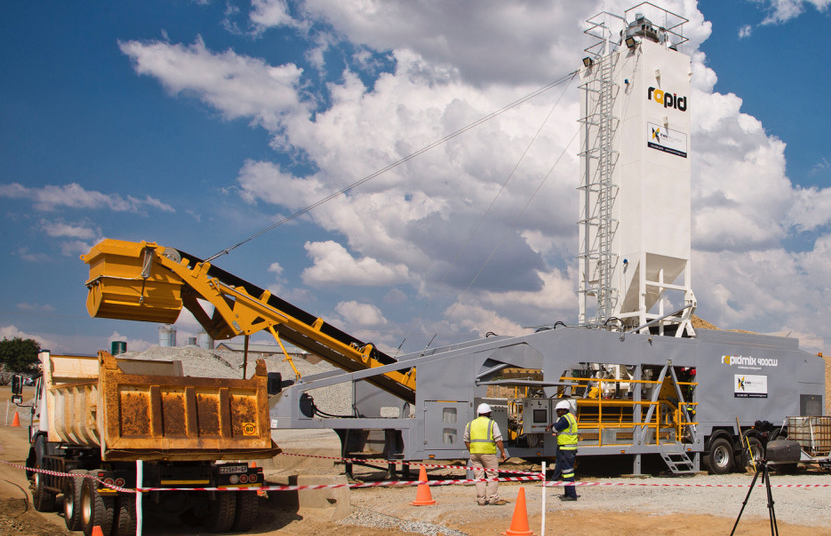
KwaMhlanga Group bought the Rapidmix plant for road rehabilitation via base layer stabilisation and road construction using sub-base layer stabilisation. The group’s previous production process resulted in inaccurate blending of emulsions and cement into aggregates and lower than desired outputs, and to overcome these limitations, KwaMhlanga set out to source a more effective equipment solution. It decided to invest in the Rapidmix 400CW mobile continuous concrete mixing plant.
“KwaMhlanga did research for several years on aggregate mixing and found the very best solution in the Rapidmix,” says Francois Bakkes, operations director, KwaMhlanga Group.
“The Rapidmix is a hi-tech plant that is manufactured to last and offers maximum production. It has provided high accuracy stabilisation.”
Rapidmix says it offers full weighing of all aggregates, cement and water, addressing the group’s difficulties with blending accuracy. The machine’s cement silo offers weighing capabilities via dual rotary valves and load cell suspended screw conveyors, and it also features a weigh belt, weighing material from the aggregate hopper to the mixing chamber. The integral control system enables automated, precise and detailed record keeping and storing of multiple recipes for the proportioning of different materials.
Due to its design and performance, the pugmill mixer is said to be efficient and can be used in a variety of applications, including cement bound materials and bitumen emulsions. The Rapidmix 400CW mobile continuous concrete mixing plant can produce outputs of up to 400tonnes/hour, a substantial increase for the group.
Bakkes says that the Rapidmix plant has almost doubled the roadworks production on its construction sites, resulting in more competitive pricing in the market. Recognising the potential of the Rapidmix’s new technology for South African infrastructure, KwaMhlanga Group has started preliminary testing of roller compacted concrete (RCC) on existing roads.
RCC was first developed in the 1970s and is already well established in the US, UK, Philippines, Spain, Croatia, Poland, Latvia and France. The group intends to present its test results to local government authorities with a view to introducing this application within South Africa.

